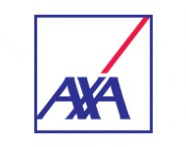The importance of building corporate resilience in crisis management

Authored by AXA XL
Businesses today face a wide range of evolving and complex risks and potential crisis situations wherever they operate. Charlie Matheson, Global Product Head – Security Risks, at AXA XL, explains the importance of being prepared, building resilience, and of responding effectively should an event happen.
The COVID-19 pandemic has been a true global crisis. The tragic loss of life, and severe and lasting health effects for so many hundreds of thousands of people, have been a salutary reminder that a crisis can hit anyone, at any time.
As organisations in all sectors quickly found new ways of working to adapt to the pandemic and the restrictions on the movement of people and goods, many were prompted to think even more deeply about how to build corporate resilience.
Against the backdrop of the pandemic, the myriad other risks that organisations face when operating at home or abroad - and which could escalate into a crisis - have not gone away. Those include natural and man-made disasters, political violence and terrorism, bribery, lone assailants, political upheaval, industrial accidents and more.
Some of these risks may be well known and understood by businesses, others might be new and evolving. Current risks faced by companies operating around the world include increased political and social unrest in Lebanon, ongoing protests and unrest in Hong Kong, and an uptick in “virtual kidnappings” in hotels in Mexico – whereby victims are forced to refrain from contacting the outside world and an extortion demand is made for their freedom.
The current global situation is such that a “non-pandemic” crisis becomes a potentially more complex crisis than it would have been, because of the health emergency that we still face and the measures in place to try to combat it.
Being prepared and resilient is key. We want to help our clients not only to understand, assess and be prepared for risks to their people and operations, but also to find ways to mitigate and manage crisis situations should they occur.
Building resilience
“Building resilience is about prevention, preparation and response,” says Pete Doherty, Head of Crisis Response for world leading crisis-response partner S-RM.
It is impossible to prevent all crises, and so we believe it is hugely important for companies to build up their resilience, to find ways to help protect their people, their assets and their reputation and be able to bounce back quickly after an event.
Pete explains that using cutting-edge technology enables S-RM to turn real-time data into actionable intelligence and carry out threat analyses on political, security and commercial risks across more than 190 countries and territories.
This continual monitoring of potential threats enables organisations to prepare for crises and build up their resilience.
Training is one way in which companies can improve their resilience. We work with S-RM, to provide clients with pre-crisis training and planning.
And crisis response consultants like S-RM can help to create simple, practical crisis management plans and offer bespoke training for staff, training to test those crisis management plans, and preparing for crisis communications.
This type of planning enables companies to think about what could go wrong before it goes wrong.
24/7 response
Of course, not all situations can be prevented and inevitably crises will sometimes occur. The lockdown imposed by many governments to try to curb the spread of COVID-19 highlighted not only the importance of being prepared but also of having access to expert support, fast, when you need it.
Our Crisis Prevention and Response Product – Corporate CPR – gives clients 24/7 access to the experts at S-RM. It also provides them with access to the services of Instinctif Partners, a team of crisis communications specialists. This gives clients support to deal with both the traditional and social media and with internal and external communications requirements, among other things.
Communications support can help clients to manage the potential risks to their reputation.
Every crisis is, to some extent, unique. And each business’ vulnerabilities will be different. We work with clients from across a broad range of industry types and we realised that different sectors can face different risks.
To meet this need, we have created coverage that can be tailored according to a client’s industry types. Those sectors include: Aid & Development; Aviation; Education; Hospitality; Maritime; Mining; Media Production; Financial Institutions; Events; Oil & Gas; Retail; and Real Estate.
It’s a well-worn phrase, but we are living through unprecedented times. “Be prepared” – the motto of the worldwide scouting movement has never felt so apt. As the COVID-19 pandemic has shown us, a crisis can take many forms and hit all sorts of ways. If companies understand their vulnerabilities, have plans in place to prevent and manage crises and their aftermath, they can feel confident that they have prepared well.
About AXA XL
AXA XL is the P&C and specialty risk division of AXA which provides property, casualty, professional and speciality products to industrial, commercial and professional firms, insurance companies and other enterprises, here in the UK and throughout the world. With underwriting teams based in the US, UK, EMEA and Asia Pacific regions, we can make decisions close to the markets you serve and work with you to tailor cover to your business needs.
We help businesses adapt and thrive amidst change. Rather than just paying covered claims when things go wrong, we go beyond protection into prevention so your business can go beyond the unexpected.

